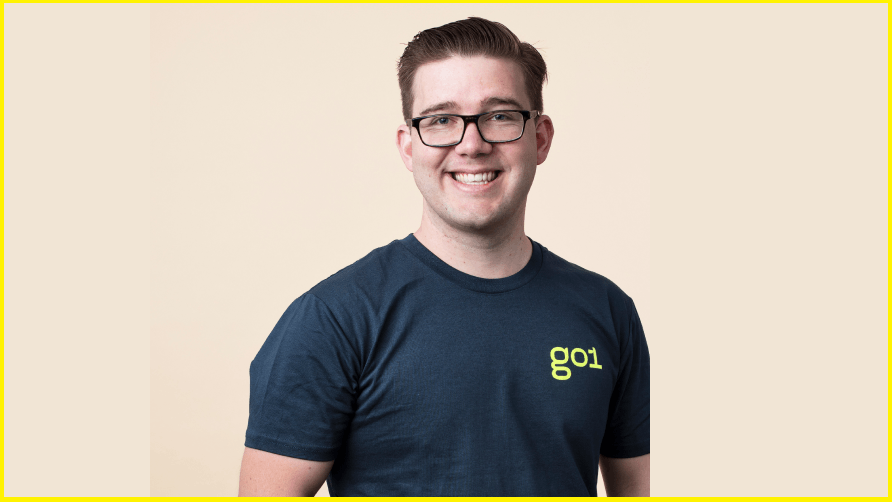Startup incubators have their value but they aren’t a “silver bullet”, the CEO and founder of recently anointed Australian unicorn Go1 has warned as the six-year-old company gets ready to invest its newly acquired $272m ($US200m) VC windfall.
The success of the newly-minted unicorn wasn’t always assured, CEO and founder Andrew Barnes told a recent ‘Ask Me Anything’ webinar hosted by TEN13 founder Steve Baxter, noting that it took a lot of time before Barnes and his founders were even able to clearly explain what they did.
“We set out to become the Spotify or Netflix of corporate training,” Barnes said, “but when we began, no one really understood what we were doing.”
Barnes ultimately enrolled the company in the “pre-eminent” Y Combinator incubator, believing its experts would magically help transform Go1 into a startup success story.
“We all thought they had some sort of secret sauce or silver bullet,” he said, “and once you’re in, they would tell you all the tricks and how to build a business.”
The reality proved to be much more ordinary: a lot of the advice, he said, turned out to be “the same advice you could read in any sort of blog post – build a product that customers love, focus on what you’re doing, don’t get distracted – making it very expensive to give up that amount of equity for the basics.”
Overall, he said, the program “was definitely worthwhile… it’s a good opportunity to have an artificial deadline to work towards, and a bit of a forcing function to really kick things off.”
Yet it took two years of work before Go1 finally found its feet, building on the support of both Y Combinator connections and investors like Baxter.
Not that Baxter had much choice: “we stuck with you,” he told Barnes, “because we couldn’t make your first product [GoCatalyze] work. We did grit our teeth and get through it.”
“We had a couple of other ideas that weren’t tremendous success stories,” Barnes conceded.
Yet years of study – including an honours year at the University of Queensland, a Rhodes Scholarship, and PhD in business strategy – had taught him “how to write and communicate” through essay writing, as well as how to apply the scientific method to business challenges.
“In the startup world, you would call this experimentation and just try different ideas,” he said, noting that the support of incubators “has been helpful around the edges.”
“It’s all those complex fuzzinesses and coincidences that add up to the overall story.”
Sharpening the horn
Developing Go1’s value proposition clearly enough that it could be successfully sold to customers marked its transition from pie-in-the-sky idea to viable business – and Barnes flagged a major turning point when Go1’s first salesperson was able to sell the company without its founders being present.
“When we got the first sale, and none of the co-founders had anything to do with it, that was magical,” he said, adding that he is “tremendously grateful” that his sales team “gave us the patience to get through those early years.”
Go1’s rapid rise to unicorn status – which was cemented in July after a Softbank-led Round C fundraising brought $272m ($US200m) into the six-year-old startup’s coffers – reflected years of work growing it from being a provider of just eight corporate training courses, into a global training clearinghouse building targeted bundles from a menu of over 200,000 third-party courses.
The cashed-up company has offices in five countries – with the considerable support of venture capitalists at SoftBank, AirTree, Salesforce, and Microsoft – and it continues to go from strength to strength as it leverages the fortuitous timing of a global pandemic that sent businesses and training institutions scrambling for solutions to help deliver skills remotely.
Restrictions on travel “are both a blessing and a curse in that no one expects you to hop on a plane anymore,” Barnes said, calling it “incredible that you can go internationally without the expense, time and resource commitment of jumping on planes.”
Yet thinking that an Australian company can take on the world by Zoom is also optimistic, he said, noting that the company’s first and “utterly unsuccessful” incursion into the United States market – which it targeted soon after exiting its engagement with Y Combinator – was partly due to a lack of awareness of simple things, such as the local vernacular.
“We had no idea on basic things,” Barnes explained, recalling the time a few months into Go1’s US foray that he was speaking with a prospect who questioned Barnes’ description of its platform as an ‘induction tool’.
“‘When you refer to it as an induction program’,” Barnes was told, “‘we think cult. So maybe you should talk about onboarding programs or something of that nature’. This really encouraged us to spend as much time with buyers in different markets to work out whether there is something different that we need to focus on.”
It wasn’t the first time he had struggled with the challenge of defining a startup’s value proposition.
Years earlier, Barnes recalled, he and some friends began marketing an early web business by door-knocking around his Brisbane neighbourhood.
“I started the day not knowing what a hawker was,” Barnes laughed, “but by the end of the day I realised that all the ‘No hawkers’ signs referred to us.”
Yet even that day turned out to plant a seed: “we got one customer from that,” he said, “and then they referred us to another five, and referred us to another 20.”
“There’s no shortcut for just rolling up sleeves and trying to talk to as many people as you can.”










